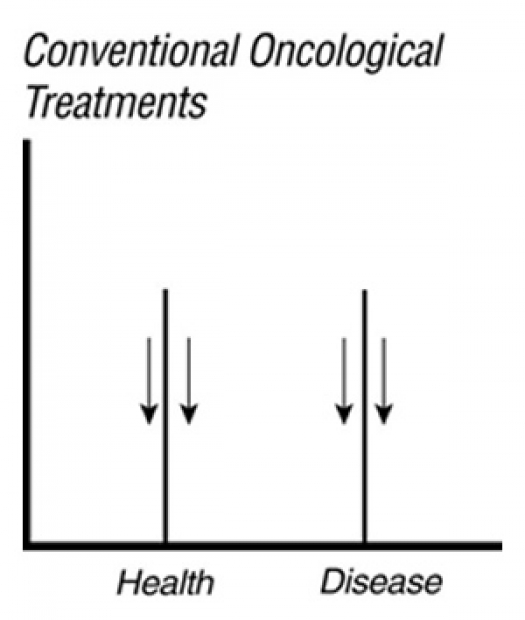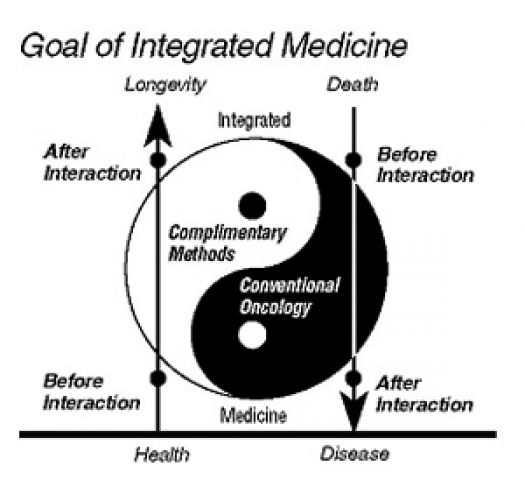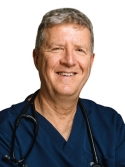HerbsBasketStethoscope.jpg

Image © George Tsartsianidis / 123rf.com
What is truly Integrative Medicine, and how does it apply to oncology? In some ways, the term "Integrative Medicine" has become a cliché, a marketing buzzword. Even 10 or 15 years ago, few of us practiced yoga, and fewer had ever received an acupuncture treatment, or heard of Curcumin, or St. Johns Wort. But as the Age of Information evolves and the popularity of alternative therapies continues to grow, more and more people adjust their lifestyles and practices to integrate holistic outlooks and treatments. In this process of transformation however, we may be busying ourselves more than ever, and easily feel confused or overwhelmed with the multitude of directions now available as we choose our healing path.
Many people view Integrative Medicine as the incorporation of multiple systems and practices of healing, rather than utilizing just one course of treatment, to aggressively fight a disease. But the true definition of Integrative Medicine, and especially integrative oncology, goes much deeper than that. One aspect of Integrative Medicine does indeed include the combination of different therapies for maximum benefit. But rather than just incorporating an arsenal of separate and non-contraindicated medical systems – such as Allopathic, Traditional Chinese, Naturopathic, etc. – to work side by side in a patient to fight cancer, for example, successful integrative oncology strategically combines specific healing systems, treatment modalities, and philosophies to function synergistically together on various levels. This multi-dimensional approach can truly work wonders. It enhances the physical, emotional, mental and spiritual health of a patient while simultaneously fighting the disease from multiple angles, thereby providing the patient with greater opportunities for a positive clinical outcome. The use of multiple modalities, targeted herbs and supplements that have been proven to work synergistically within this holistic framework of increased health vs. decreased disease, form a key cornerstone of successful integrative oncology.
But even when we integrate different healing modalities, supplements and nutrients to function synergistically – even when we make 1+1 equal to more than 2 – our thinking can still be linear. Meaning, there is no real integration of our mind. Over the years, as a meditator and integrative cancer practitioner, I've come to appreciate a deeper, more expansive perspective on integrative oncology. I see real integrative healing happen when there is a fusion of our conceptual thinking with our non-conceptual, non-linear state of mind. This happens when we can integrate our intellect, the analysis of science-based information that we learn and assimilate constantly, with a non-conceptual state of mind, with the state of infinite expansion and freedom that happens when we let go of our concepts and our mind and heart truly opens. When we can successfully integrate both approaches of rational thinking with non-conceptual, boundless consciousness together, this is when true healing and real Integrative Medicine can take place.
Truthfully, Integrative Medicine is actually a very meaningful term and it's a very profound task for both the health practitioner and the patient to take on. This system of healing allows practitioners the opportunity to engage people on a very deep level, to touch people on a very deep level, addressing the physical realities of a patient together with their emotional, psychological, and spiritual state of being. With my patients, we meditate together, we share our emotions and feelings together, and there is no white coat, or hospital gown, or even diplomas on the wall to separate doctor from patient. It is this equal ground, this boundary-less relationship between practitioner and patient that creates a safe and nurturing space where patients can express themselves and feel empowered, and this is a very important aspect to any form of healing. It is one of the first of three simple but essential ideas that form the basis of Integrative Medicine:
- Integrative Medicine is patient-driven medicine. This means that the patient is driving the interaction, and the medicine and healing is led by the patient, not the doctor. It starts with the patient, with the patient's intuition and intent which are needed to guide the process and help make the treatments truly effective.
- Integrative Medicine requires no bias or preconceived ideas or judgment. This requires practitioners to cultivate the quality of equanimity, of not judging a patient's decisions, of being open and listening fully to the patient. It also requires this of the patient, to be open to new ideas and approaches to healing. It relates to the ancient proverb "If you do what you have always done, you will get what you have always gotten." What we are looking for here is change.
- Integrative Medicine is individualized. This means that it honors the concept of many healing paths, and that there is never a "one size fits all" protocol, even for two people with the exact same diagnosis. The individual, their environment and the interaction between the two serves as the foundation for creating truly individualized protocols. There is also process of self-discovery for the patient, as Integrative Medicine is indeed a patient driven medicine. If you tell me more about you as a patient, I will help to reflect your true self back into your healing path.
Synergistic treatment strategies
eliazconventionaloncolgy.jpg

Image provided by Dr. Isaac Eliaz
Conventional oncology focuses on destroying the disease but at the same time, it also damages the health of the patient.
With Integrative Medicine, conventional treatments such as chemotherapy can be used with greater success by complementing them with nutrients to restore vitality, boost immunity, modulate hormones, help the body detoxify, and much more. In some cases, the targeted use of specific cancer fighting nutrients alone has shown promise in preventing and controlling cancer.
eliazgoalintegrativemedicine.jpg

Image provided by Dr. Isaac Eliaz
With Integrative Medicine, conventional treatments can be used with greater success by complementing them with nutrients.
Studies have shown that combining nutrients which have different mechanisms of action in effective amounts allows the cancer to be attacked from all sides at once. In addition to their anticancer properties, many nutrients have specific health promoting properties which add greatly to their beneficial effects. These nutrients can be categorized according to their beneficial principals:
- Anti-tumor
- Prevention of cancer metastasis
- Detoxification and liver support
- Hormonal and metabolic modulation
- Anti-microbial
- Anti-inflammatory
- Antioxidant
- Anti-angiogenesis
- Immune enhancement
Integrating nutritional and botanical programs with other multi-beneficial therapies such as acupuncture, trigger point injections, homeopathy, homeotoxicology, IV therapy, infrared therapies, Cranio-sacral osteopathy, heat therapies, various exercise regimens such as yoga, Qi-Gong and Tai Chi, meditation and breathing therapies, and others, strategically and individually, works to keep the therapeutic protocols dynamic and evolving. This is a key strategy within integrative oncology, because as patients evolve on their path of healing, so too may their disease "evolve," but by keeping the treatments dynamic and changing in concert with a patient's unfolding and growth, we can stay ahead of the disease until, hopefully, we can overcome it completely.
One thing that I try to emphasize to my patients is that cancer, or any life threatening illness, can present an opportunity. Using such a crisis as a basis for change, personal growth, unfolding, and greater peace and happiness however, may sound too unrealistic, especially in the wake of a recent cancer diagnosis where there is often so much fear and misunderstanding surrounding conventional oncology. However, it is crucial to remember that things are constantly changing, within us, and around us, and that there always choices available for greater wellness, heightened perspective, and healing. The integrative healer is within you. If, with trusted guidance, you allow yourself the space that such a crisis may to create within your psyche to open, if you allow the impact of such a crisis to peel back some of the layers of distractions in your life, your innate healing energy that is an integral part of your essence can have the room to unfold and emerge, unobstructed, leading you further down the path of wisdom, health, happiness and growth.


